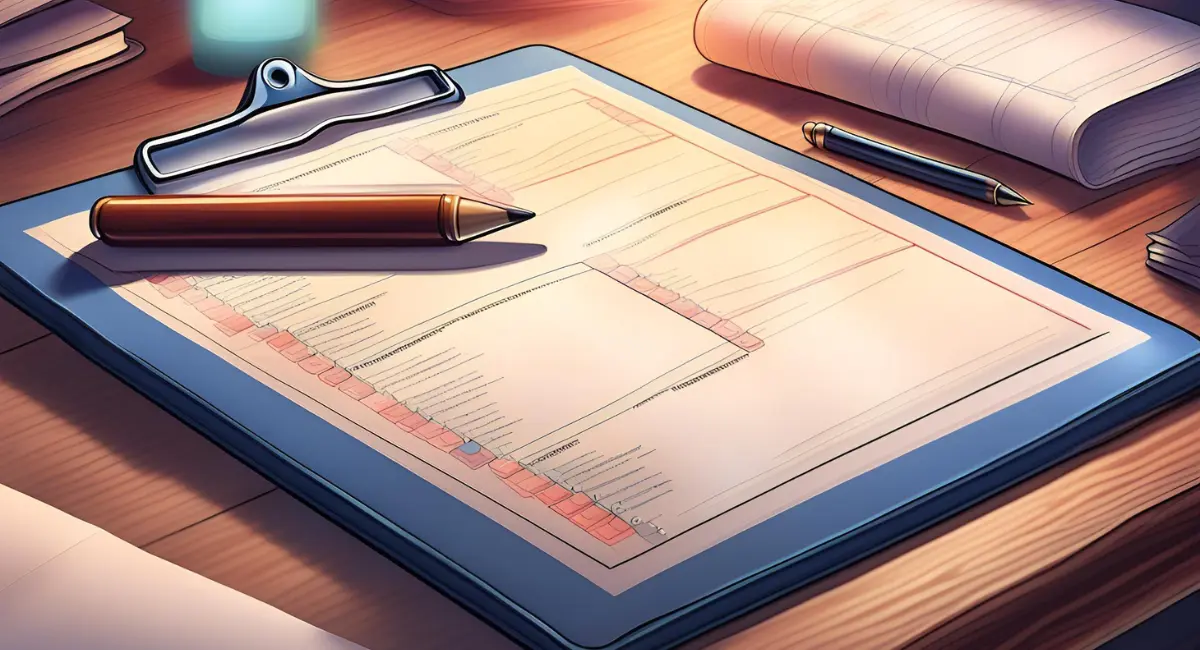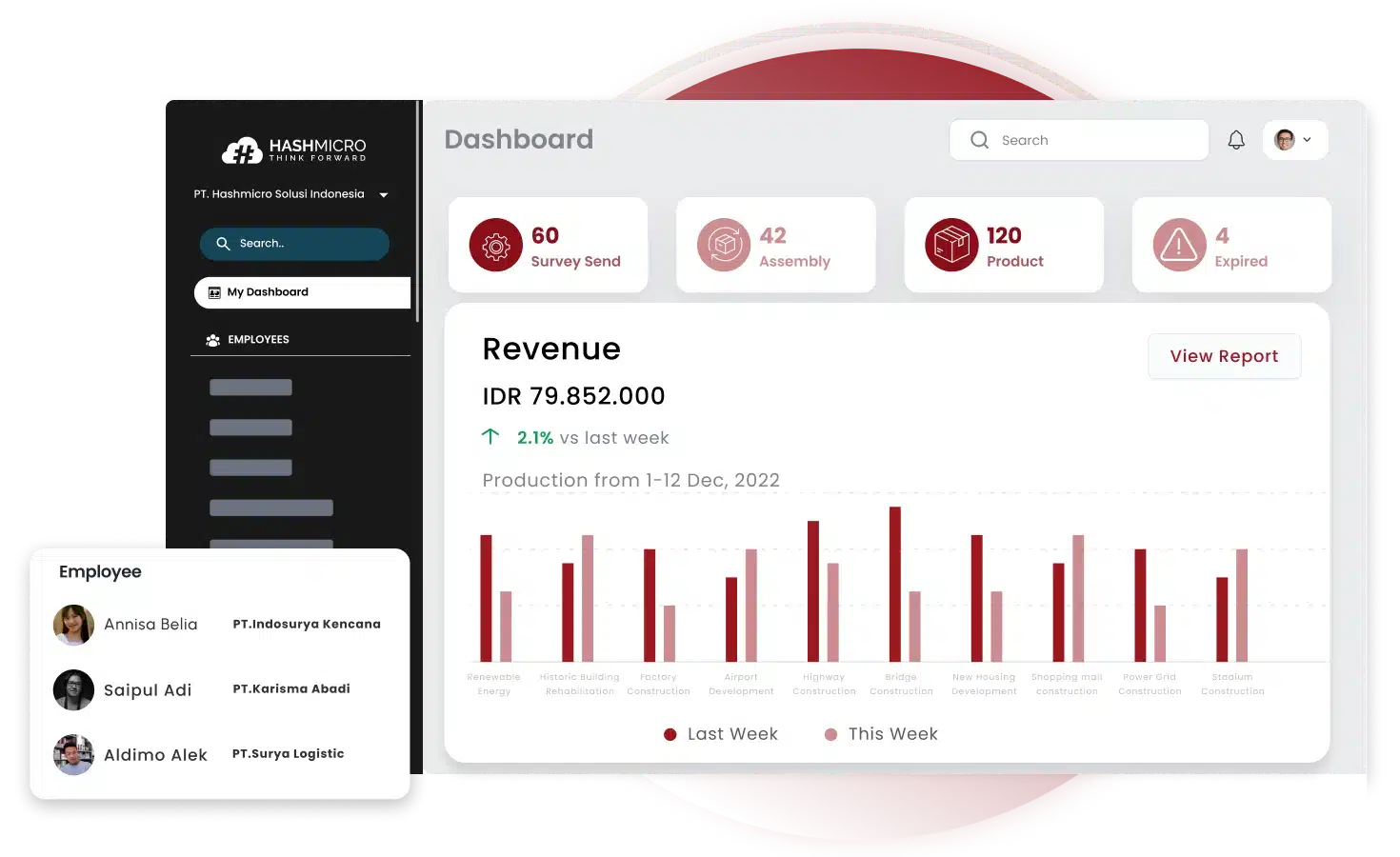Ever had a client hand back the keys because of one crooked door or a missed paint spot? Yeah, we’ve all been there.
In Singapore’s construction scene, where deadlines and standards are tighter, the last thing you want is to fumble at the finish line. That’s exactly why every serious contractor needs to master the punch list — the silent MVP of successful project handovers.
So, if you’ve ever asked, “What is a punch list?” or wondered how to avoid post-handover complaints, you’re in the right place. We’re diving into the nuts and bolts of punch lists, how they protect your reputation (and your wallet), plus how to build one that actually works.
If you’re ready to keep your next project clean, compliant, and conflict-free, keep reading.
Key Takeaways
|
Table of Content:
Table of Content
What is a Punch List?
A punch list (also known as a snag list) is a document that outlines incomplete work, minor defects, or adjustments that must be addressed before a construction project reaches final completion.
Typically prepared after the final inspection, a punch list in construction includes issues such as:
- Paint touch-ups
- Misaligned doors
- Faulty light fixtures
- Plumbing problems
In essence, it serves as a communication bridge between contractors, subcontractors, and clients to ensure all deliverables meet the agreed-upon standards.
Who Prepares the Punch List?
In most Singapore construction projects, the punch list is collaboratively created by:
- The project manager or site supervisor
- The architect or designer
- The client or owner representative
- Subcontractors responsible for specific trades
Each party inspects the project and contributes their observations. The list is then consolidated into a single master punch list that guides final corrections. To easily create a punch list, project managers usually use the best construction software.
Punch List’s Function
Although it may seem like just another checklist, the punch list is essential to construction project management. It ensures that everything is completed to specification and supports smooth stakeholder communication.
For developers and contractors in Singapore, the punch list is not just about quality control — it’s about protecting your professional reputation. Here are some of the main ways a punch list adds value to your project:
- Ensures Project Quality Meets Specifications: A punch list acts as a final checkpoint, helping contractors verify that the build matches design and contractual expectations.
- Strengthens Stakeholder Communication: It serves as a shared reference point, encouraging clear and open communication between the contractor, client, and consultants.
- Minimises Post-Handover Complaints: Addressing issues before handover drastically reduces the chances of client dissatisfaction or costly warranty claims.
- Saves on Future Repair Costs: By resolving minor issues immediately, teams can avoid larger, more expensive fixes down the line.
Ultimately, the punch list isn’t just a formality — it’s a smart business practice. For Singaporean construction professionals, embracing this tool can mean the difference between a seamless project wrap-up and a string of avoidable headaches.
Benefits of Using a Punch List in Construction Projects
Using a punch list is essential for managing quality, timelines, and expectations in Singapore’s construction industry. A well-executed punch list helps you avoid costly mistakes, enhance stakeholder confidence, and get paid faster.
Here are four key benefits of using a punch list:
- Quality Control: A punch list enforces high standards by catching and correcting minor defects before they escalate, ensuring nothing falls through the cracks.
- Time and Cost Efficiency: With a clear list of outstanding tasks, teams can avoid inefficient guesswork and reduce delays or rework that could derail the schedule.
- Contract Compliance: The punch list helps verify that all contractual obligations are fulfilled, reducing disputes and providing documentation of accountability.
- Final Payment Clearance: Clients often tie final payment to the resolution of punch list items. A clear, completed list speeds up this process and secures your cash flow.
- Boosts Team Accountability: Each item is assigned to a specific party, ensuring ownership and visibility into who is responsible for what — reducing confusion and delays.
- Improves Client Satisfaction: Clients feel more confident when they see that even the smallest details are addressed. This builds trust and encourages future collaboration or referrals.
When used strategically, punch lists are more than a to-do list — they’re a smart project safeguard. Embracing them can mean smoother project completions and happier clients across every build.
Punch List Example
Let’s say a new residential condo in Singapore is nearly finished. During the final walkthrough, the site engineer noted the following punch list items:
| Description | Location | Assigned To | Priority | Status |
|---|---|---|---|---|
| Paint touch-up on wall | Unit 3A Bedroom | Painter | Medium | In Progress |
| Replace cracked tile | Lobby Entrance | Tiling Contractor | High | Not Started |
| Fix leaking faucet | Unit 5B Bathroom | Plumber | High | Completed |
| Adjust misaligned cabinet door | Kitchen Unit 2C | Carpenter | Low | In Progress |
This simple list provides clarity and accountability, ensuring that all outstanding issues are resolved before keys are handed over.
Steps to Create a Punch List
Follow these 6 steps to build an effective punch list for your Singapore-based construction project:
Follow these 6 steps to build an effective punch list for your Singapore-based construction project:
1. Conduct a final walkthrough
Schedule a walkthrough with key stakeholders to identify any incomplete or defective work. This ensures that nothing is missed before the handover.
2. Document the observations
Record each issue clearly, noting its location, type, and who is responsible. This helps track accountability and resolution.
3. Assign priorities
Not all tasks carry the same weight. Prioritise issues based on urgency, especially those affecting safety or functionality.
4. Distribute the list
Share the compiled punch list with contractors and team members. Everyone should know their tasks and deadlines.
5. Reinspect the site
Do a follow-up inspection after corrections are made. This confirms that all punch list items are properly resolved.
6. Final approval and handover
Once everything is complete, get the final sign-off from the client. This step marks the official project closure and payment release.
Punch List Standard: What Should It Include?
To meet punch list standards, your document should typically contain:
- Project name and location
- List of defects or unfinished tasks
- Location of each issue
- Responsible party
- Status (e.g., not started, in progress, completed)
- Date of inspection and expected resolution
Easily Create and Manage a Punch List with HashMicro’s Construction Software
If you’re handling complex projects in Singapore, you need a smarter, faster, and more reliable way to track and resolve every issue that stands between you and a successful handover. One of the reliable ways is to implement HashMicro’s Construction Software!
Here are five powerful features of HashMicro’s Construction Software that make punch list management easier than ever:
- Real-Time Punch List Tracking: Keep tabs on every issue as it’s reported, assigned, and resolved — all updated in real-time.
- Automated Notifications: Get alerts when deadlines are approaching or when tasks remain unresolved so nothing slips through the cracks.
- Task Assignment and Scheduling: Easily assign specific punch list items to contractors or team members with due dates and priorities.
- Progress Dashboards and Reporting: Access visual dashboards and generate reports to monitor overall progress and identify project bottlenecks.
- Mobile Accessibility: Update and view punch lists from anywhere using mobile devices, allowing for real-time collaboration on-site.
By combining these tools in one intuitive platform, HashMicro helps Singapore construction teams resolve issues faster and deliver higher-quality projects. This software could be your next best investment if you’re ready to ditch spreadsheets and simplify your punch list process.
Conclusion
A punch list is a document used to track final issues before completing a construction project. It helps contractors ensure every detail meets the agreed standards and satisfies client expectations. In Singapore, it’s a powerful tool to protect your quality, timeline, and reputation.
Managing punch lists with HashMicro’s software gives your team visibility, control, and efficiency in one platform. From real-time tracking to mobile access, it streamlines your workflow and speeds up completion. Ready to simplify your punch list process? Join our free demo today.
Frequently Asked Questions
-
What does a punch list include?
A punch list includes a detailed list of incomplete or defective tasks that must be resolved before project completion. It covers everything from minor cosmetic fixes to major adjustments needed to meet project specifications.
-
What items are on a punch list?
Items on a punch list can include things like paint touch-ups, misaligned doors, faulty light fixtures, plumbing issues, or any other minor or major defects that need fixing before the project is finalized.
-
What is the difference between a checklist and a punch list?
A checklist verifies completed tasks and milestones, whereas a punch list focuses on identifying unfinished or defective items that must be fixed before final handover. The punch list typically targets issues left to resolve, often after a final inspection.



































